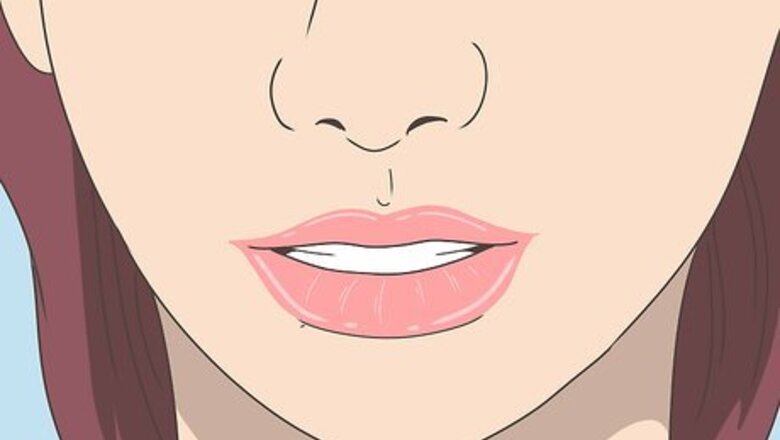
views
Conditioning Your Lips
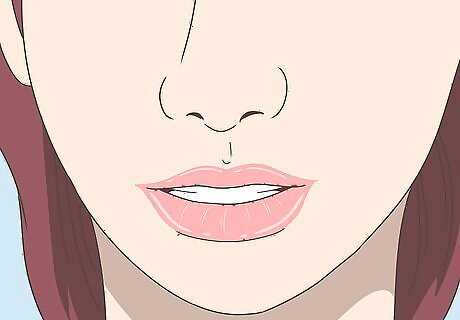
Work on conditioning your lips instead of picking. Do you absentmindedly pick away the dead skin that builds up on your lips? When you feel a bit of skin flaking off, it may be impossible to resist picking it. However, picking your lips doesn't actually make them less dry or healthier. Instead of picking the skin off, try putting that energy into making your lips healthier. The result will be supple, dry-skin-free lips that look great, rather than rough-looking lips that bleed where you pick them. If your picking habit is actually a persistent bad habit or nervous tic, it'll take more than conditioning your lips to fix the problem. See How to Break a Bad Habit for help on putting a stop to your lip picking for good. If you're worried you can't stop on your own, see a therapist and determine whether you might have Compulsive Skin Picking disorder, which is closely linked with Obsessive Compulsive Disorder (OCD) and Body Dysmorphic Disorder. This is very difficult to solve on your own, so seek the help of someone who can advise you.
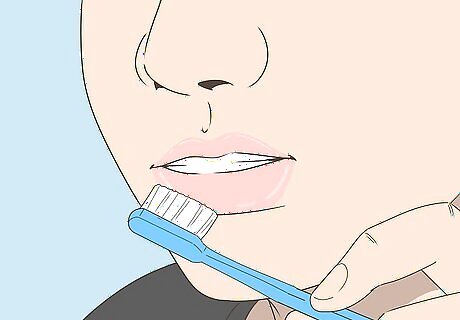
Brush your lips with a toothbrush. Moisten your lips with warm water, then use a clean toothbrush to gently brush them in a circular motion. This will remove the buildup of dry, dead skin that's causing your lips to be chapped and flaky. While picking your lips often removes too much skin and results in bleeding, brushing your lips removes just the top layer of dead skin, keeping the protective layer in place. A clean loofah is another good item to use to brush your lips. Just make sure you don't use an older loofah, since these can harbor bacteria. Do not scrub your lips too hard with the brush. It's OK if your lips are still a little rough after brushing. You may need more than one session to completely get rid of the dead skin.
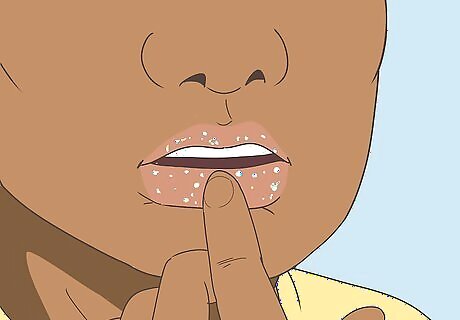
Try a sugar scrub. This is a great option if your lips are very chapped and sore, since it's a little gentler than using a brush. Make a simple mixture of one teaspoon of sugar and one teaspoon of honey. Spread a little on your lips and use your fingers to massage the scrub across your lips. It will remove the top layer of dead skin without damaging the layer underneath. When you're finished, rinse your lips with warm water. You can exfoliate your lips as often as every other day. Never use an abrasive scrub to exfoliate your lips.
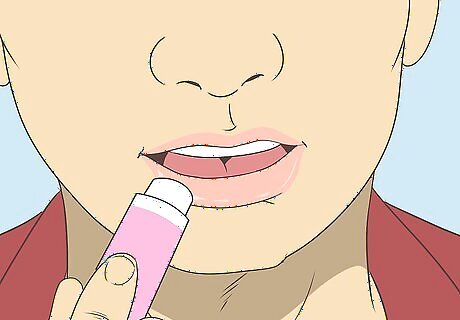
Apply an emollient lip balm. An emollient is a substance that traps moisture in your skin and protects it from getting dried out. When your lips are severely chapped or torn up, regular chapstick may not be enough to help them heal. Look for a product that contains one of the following emollients as a primary ingredient: Shea butter Cocoa butter Jojoba oil Avocado oil no Rosehip oil Coconut butter Always moisturize your lips after exfoliating them.
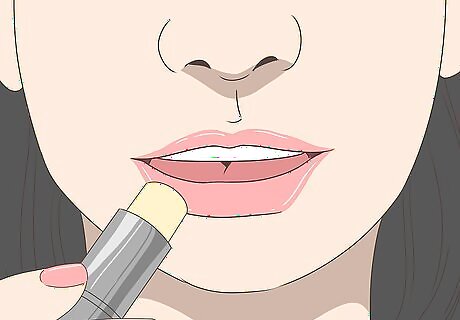
Repeat until your lips are free of dry skin. It may take more than one conditioning session to get your lips back into shape. Every few days, repeat the process of exfoliating your lips. In between sessions, wear an emollient product on your lips during the day and at night while you sleep. Don't repeat the process more than once a day, since that could cause skin irritation.
Keeping Your Lips Hydrated
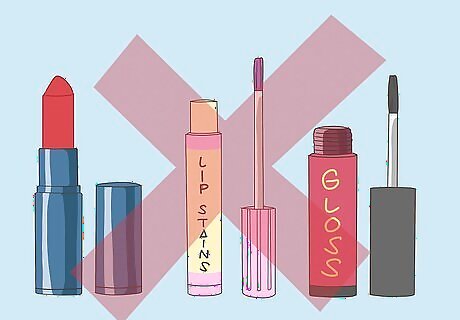
Avoid using products that dry out your lips. Your average drugstore lip balm is likely to contain ingredients that actually make your lips drier over time. Keep using a good emollient balm with gentle ingredients. Avoid products (including lipsticks, stains and glosses) that contain the following skin irritants: Alcohol Fragrance Silicones Parabens Camphor, eucalyptus, or menthol Flavorings like cinnamon, citrus, and mint Salicylic acid
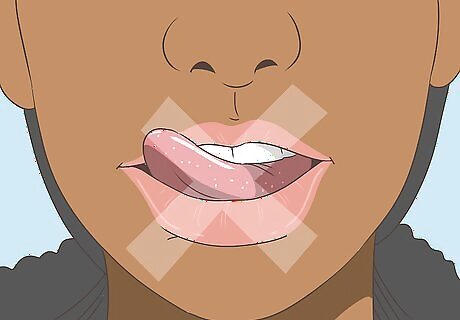
Don't lick your lips. You might be compelled to lick your lips when they're dry, but enzymes in your saliva will cause them to dry out even more. Just as you're resisting the urge to pick, resist the urge to lick.

Protect your lips overnight. Do you tend to wake up with dry lips? That may be the result of sleeping with your mouth open. When you breathe through your mouth all night long, your lips can dry out quickly. While it may be difficult to change your breathing habits, you can correct the problem by protecting your lips at night. Remember to apply lip balm every night before bed so you'll wake up with lips that are moisturized instead of flaky.
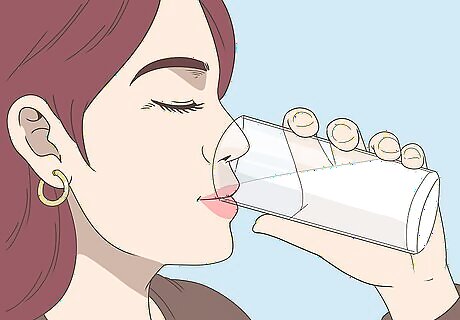
Drink lots of water. Dry, chapped lips are often a side effect of dehydration. It's possible you aren't drinking enough water during the day. Drink every time you get thirsty, and try to switch out coffee and soda for water whenever possible. Within a few days your lips will be softer and better moisturized. Alcohol is notorious for causing dehydration. If you tend to wake up with chapped lips, try cutting off alcohol use a few hours before bed and drinking lots of water before you go to sleep. Carry a reusable water bottle with you throughout the day so you'll always have fresh water available when you're thirsty.
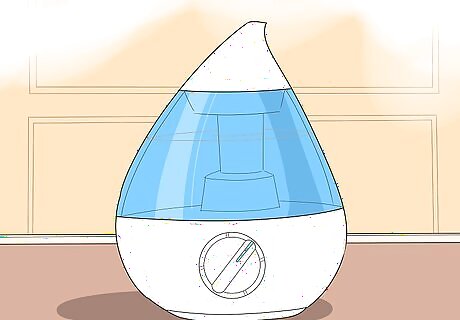
Try a humidifier. If your skin is naturally dry, a humidifier can be a lifesaver, especially during the winter. Humidifiers add moisture to dry air so that it's much easier on your skin. Set one up in your bedroom and see if you can tell the difference after a few days.
Making Lifestyle Changes
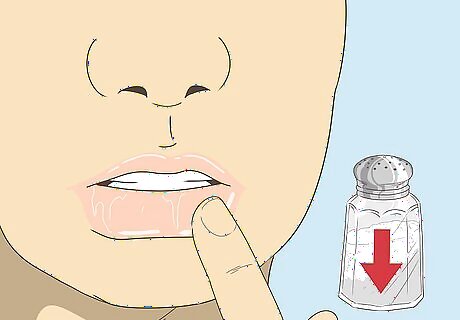
Eat less salt. Salt buildup on the lips can cause them to dry out quickly. Changing your diet so that it includes less salt might make a big difference in the texture of your lips. When you do eat salty foods, rinse your lips with warm water afterward so the salt doesn't sit on your lips.
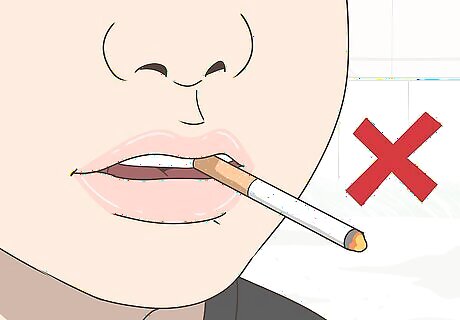
Avoid smoking. Smoking is tough on lips, causing dryness and irritation. If you're a smoker, there are lots of good reasons to kick the habit, and having healthy lips is one of them. Try to cut back on smoking as much as possible to save your lips from getting damaged.
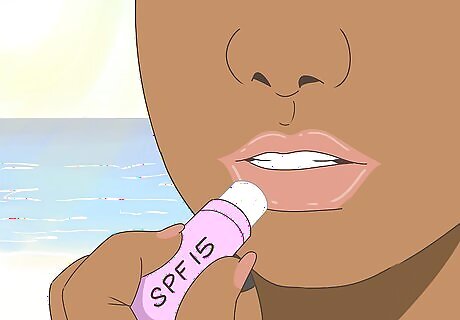
Protect your lips from sunburn. Just like the rest of your skin, the skin on your lips is susceptible to sun damage. Wear lip balm with SPF 15 or higher to protect your lips from getting burned.
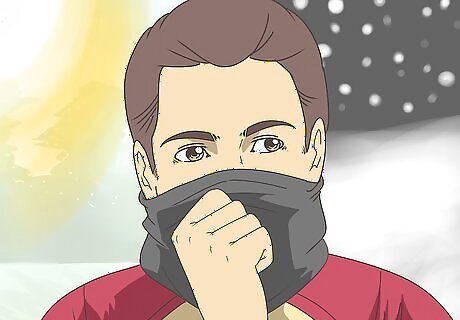
Cover your face in cold or dry weather. There's nothing like the cold, dry air of winter to make your lips dry and flaky. If you tend to pick your lips more in the winter than in the summer, that's why. Try pulling your scarf up over your mouth when you go outside to protect your lips from the cold.




















Comments
0 comment